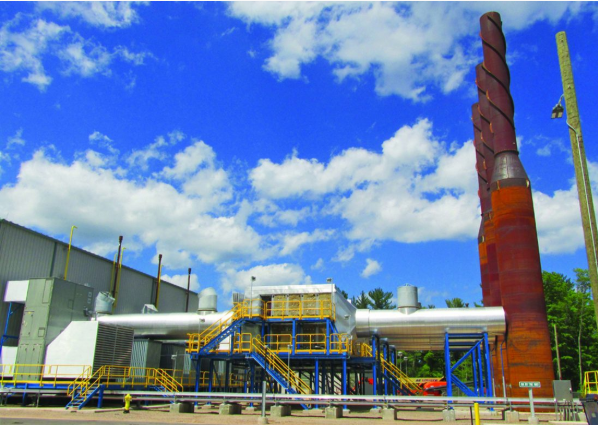 At left, the Marquette Board of Light and Power’s Marquette Energy Center along Wright Street is pictured. Due to the retirement of the coal-fueled Shiras Steam Plant and the MEC’s operational flexibility, BLP officials say the municipal utility has credited around $1.3 million back to its customers over the past year. (Journal file photo)
At left, the Marquette Board of Light and Power’s Marquette Energy Center along Wright Street is pictured. Due to the retirement of the coal-fueled Shiras Steam Plant and the MEC’s operational flexibility, BLP officials say the municipal utility has credited around $1.3 million back to its customers over the past year. (Journal file photo)
Implementing energy optimization measures in a home or business can help reduce the consumption of fossil fuels, lessening both greenhouse gas emissions and energy costs.
“From a consumer standpoint, it’s a way to control their own destiny in a sense where they can control their energy use in their costs and how much money they’re spending,” Marquette Board of Light and Power Executive Director Tom Carpenter said.
For this reason, the Marquette Board of Light and Power is working to spread the word about the statewide energy optimization program, as it can provide rebates for consumers who purchase energy-efficient items, such as LED light bulbs or Energy Star appliances.
“Refrigerators, microwaves, anything that you could go out to a store and buy that’s going to be more energy efficient, there could be a rebate from that program back to you as a customer,” Carpenter said.
The program has generated significant savings, as the energy-efficient items purchased through the rebate program have reduced BLP customers’ electric usage from 2008 to 2017 by over 31.3 million kilowatt-hours, saving customers over $17 million during this period, said Carpenter and Toby Smith, manager of accounting and customer service at the BLP.
In terms of greenhouse gas emissions, saving 31.3 million kilowatt-hours is the equivalent of planting 365,853 tree seedlings and letting them grow for 10 years or switching 840,417 incandescent bulbs to LEDs, according to the U.S. Environmental Protection Agency’s greenhouse gas equivalencies calculator.
To look at it from an alternate point of view, if those 31.3 million kilowatt-hours had been used, it would have been the equivalent of burning 24,188,356 pounds of coal or consuming 51,226 barrels of oil, according to the EPA’s calculator.
It’s important to recognize, Carpenter said, that this is a low-end estimate of the actual savings, as energy savings can compound over the life of an energy-efficient item.
This energy optimization program is part of a larger effort throughout the state that stems from Public Act 295 of 2008, which expanded energy efficiency efforts, supported the development of clean and renewable energy and aimed to improve air quality through a number of measures, information from the Michigan Legislature states.
“It was mandated by the state in 2008 as part of the energy legislation statewide,” Carpenter said. “We’ve implemented it since then. We have a mandated goal of achieving a 1% savings per year in energy efficiency.”
The Marquette BLP is one of 13 municipal and cooperative utilities that is part of the Michigan Electric Cooperative Association collaborative, which is a group of electric service providers that offer energy optimization programs.
And for those who have noticed the Michigan energy optimization charge line item on their BLP bill, this is the program the charge provides funding for, allowing customers to get rebates back when they purchase energy-efficient items, he said.
“All the customers pay into a little pool, which creates a program that funds rebates for people to go purchase more energy-efficient items,” Carpenter said. “And when you do that, you can get a rebate to help pay for it. Then you can use less electricity on top of it, so you’re going to save money that way too.”
Beyond saving energy at homes and businesses, the program also helps reduce the need for new generation equipment at the BLP.
“It controls how much we have to spend to buy more power plant equipment, pipes and wires and transformers and whatever we might need,” Carpenter said. “If that load is continuing to go up, we have to keep building and building and building. And we’ve seen a flat to declining load since 2007, which has helped us run our assets the way they are and not have to expand.”